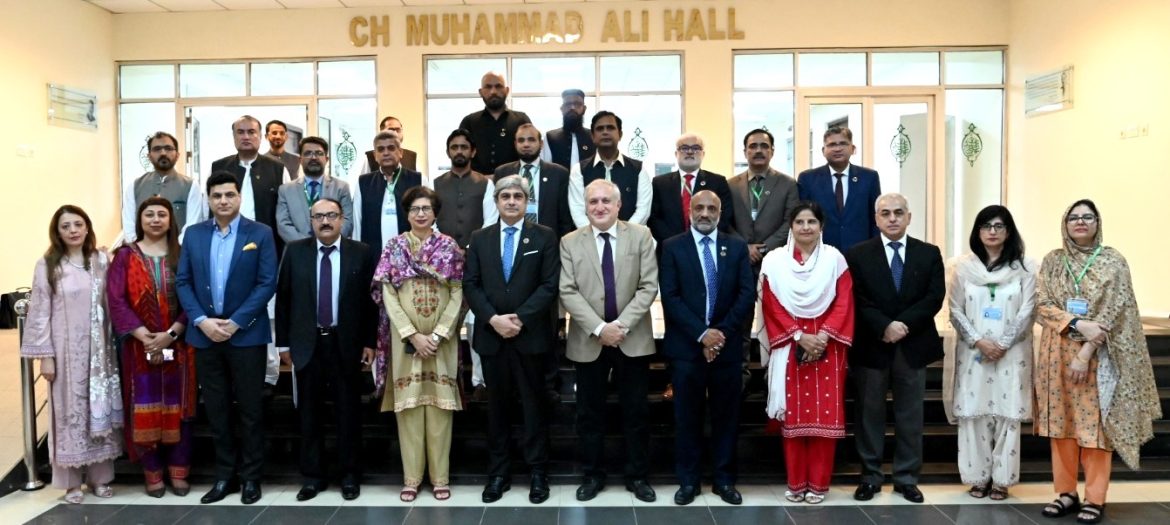ISLAMABAD ( WNAM REPORT): For the first time ever, the Higher Education Commission (HEC), Pakistan successfully concluded a series of capacity-building training for its officers through the Civil Services Academy (CSA), Lahore.
Five cohorts of HEC officers, comprising around 100 officers including Director Generals, Directors, and Deputy and Assistant Directors from all HEC offices, have been trained under this pioneering collaboration. This indeed marks a major step towards strengthening governance capacity, leadership effectiveness, and institutional performance in the higher education sector.
The initiative — conceptualised by Managing Director National Academy of Higher Education (NAHE). Dr. Noor Amna Malik and designed by Deputy Director (NAHE) Ms. Sadia Bukhari after a detailed assessment of competency gaps across various cadres — aimed at developing a progressive and well-equipped workforce, i.e., capable of meeting emerging challenges in governance, policy, and innovation.
The training modules were designed and effectively implemented with high-quality learning content, expert facilitation, and strong coordination between NAHE and CSA. The training covered critical themes including governance excellence, ethical leadership, strategic and financial management, policy formulation, project planning, and effective communication, along with modules on emotional intelligence, stress management, and professional ethics. The programme also adopted a blended learning approach under the theme “Classroom and Beyond”, combining classroom lectures, case-based discussions, and experiential learning to translate theory into practice.
Addressing the closing ceremony of the senior management cohort, Chairman HEC Mr. Nadeem Mahbub appreciated the initiative and commended NAHE for its proactive efforts to enhance the professional capacity of HEC’s workforce. He lauded the successful collaboration with CSA as a historic milestone, reflecting HEC’s commitment to human capital development and institutional excellence. He emphasised that such structured, competency-based training programmes are vital to improving service delivery, governance, and policy implementation in the higher education sector.
In his remarks during the last cohort ceremony, Director NAHE Dr. Munir Ahmed highlighted the significance of partnership between NAHE and CSA, which he said represents a model of inter-institutional collaboration for national capacity building. He noted that this was the first-ever instance where HEC outsourced employee training to a premier national training institution, setting a new precedent for professional development within the Commission.
It is worth-mentioning here that HEC plans to formalise a Memorandum of Understanding (MoU) with CSA to further strengthen this collaboration in the near future. The future collaboration will focus on continuing joint training programmes for HEC employees, fostering innovation in learning, and promoting a sustained culture of professional excellence and capacity building within the higher education sector.


